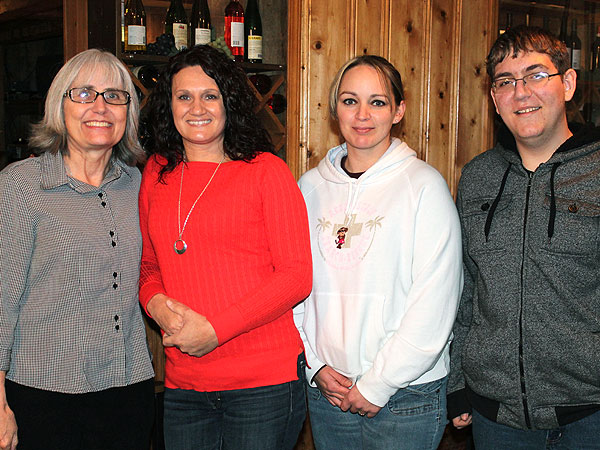VATICAN CITY (Reuters) - Pope Benedict stunned the Roman Catholic Church including his closest advisers on Monday when he announced he would stand down in the first papal abdication in 700 years, saying he no longer had the mental and physical strength to run the Church through a period of major crisis.
Church officials tried to relay a climate of calm confidence in the running of a 2,000-year-old institution but the decision could lead to one of the most uncertain and unstable periods in centuries for a Church besieged by scandal and defections.
Several popes in the past, including Benedict's predecessor John Paul, refrained from stepping down even when severely ill, precisely because of the confusion and division that could be caused by having an "ex-pope" and a reigning pope living at the same time.
This could create a particularly difficult problem if the next pope is a progressive who influences such teachings as the ban on women priests and artificial birth control and its insistence on a celibate priesthood.
The Church has been rocked during Benedict's nearly eight-year papacy by child sexual abuse crises and Muslim anger after the pope compared Islam to violence. Jews were upset over rehabilitation of a Holocaust denier and there was scandal over the leaking of the pope's private papers by his personal butler.
In an announcement read to cardinals in Latin, the universal language of the Church, the 85-year-old said: "Well aware of the seriousness of this act, with full freedom I declare that I renounce the ministry of Bishop of Rome, Successor of St Peter ...
"As from 28 February 2013, at 20:00 hours (1900 GMT) the See of Rome, the See of St. Peter will be vacant and a conclave to elect the new Supreme Pontiff will have to be convoked by those whose competence it is."
POPE DOESN'T FEAR SCHISM
At a news conference, chief Vatican spokesman Father Federico Lombardi said the pope did not fear a possible "schism" in the Church, with Catholics owing allegiances to a past and present pope in case of differences on Church teachings.
The pope, known for his conservative doctrine, stepped up the Church's opposition to gay marriage, underscored the Church's resistance to a female priesthood and to embryonic stem cell research.
But Lombardi said Benedict, who is expected to go into isolation for at least a while after his resignation, did not intend to influence the decision of the cardinals who will enter a secret conclave to elect a successor.
A new leader of the world's 1.2 billion Roman Catholics could be elected as soon as Palm Sunday, on March 24, and be ready to take over by Easter a week later, Lombardi said.
He indicated the complex machinery of the process to elect a new pope would move quickly because the Vatican would not have to wait until after the elaborate funeral services for a pope.
The decision shocked many throughout the world, from ordinary believers, to politicians to world religious leaders.
"This is disconcerting, he is leaving his flock," said Alessandra Mussolini, a parliamentarian who is granddaughter of Italy's wartime dictator.
"The pope is not any man. He is the vicar of Christ. He should stay on to the end, go ahead and bear his cross to the end. This is a huge sign of world destabilization that will weaken the Church."
OWN BROTHER SURPRISED
The announcement even caught the pope's elder brother Georg Ratzinger, off guard, indicating just how well-kept a secret it was. Ratzinger told reporters in Germany that he had been "very surprised" and added: "He alone can evaluate his physical and emotional strength."
Lombardi said Benedict would first go to the papal summer residence south of Rome and then move into a cloistered convent inside the Vatican walls. It was not clear if Benedict would have a public life after he resigns.
The last pope to resign willingly was Celestine V in 1294 after reigning for only five months, his resignation was known as "the great refusal" and was condemned by the poet Dante in the "Divine Comedy". Gregory XII reluctantly abdicated in 1415 to end a dispute with a rival claimant to the papacy.
Lombardi said Benedict's stepping aside showed "great courage". He ruled out any specific illness or depression and said the decision was made in the last few months "without outside pressure".
Joseph Curran, professor of religious studies at Misericordia University in Dallas, Pennsylvania, said the modern medicine prolonging the life of people had posed difficulties for institutions whose leaders usually rule for life.
"His resignation is a tremendous act of humility and generosity," he said. "A man who lives up a position of authority because he can no longer adequately exercise that authority, and does so for the good of the Church, is setting a wonderful example," he said.
But Cardinal Stanislaw Dziwisz, secretary to the late Pope John Paul, who suffered through bad health for the last decade of his life, had a thinly veiled criticism of Benedict. John Paul stayed to the end of his life as he believed "you cannot come down from the cross," Dziwisz told reporters in Poland.
NO HINT OF RESIGNATION
While the pope had slowed down recently - he started using a cane and a wheeled platform to take him up the long aisle in St Peter's Square - he had given no hint recently that he was mulling such a dramatic decision.
Elected in 2005 to succeed the enormously popular John Paul, Benedict never appeared to feel comfortable in a job he said he never wanted. He had wished to retire to his native Germany to pursue his theological writings, something which he will now do from a convent inside the Vatican.
The resignation means that cardinals from around the world will begin arriving in Rome in March and after preliminary meetings, lock themselves in a secret conclave and elect the new pope from among themselves in votes in the Sistine Chapel.
There has been growing pressure on the Church for the cardinals to shun European contenders and choose a pope from the developing world in order to better reflect parts of the globe where most Catholics live and where the Church is growing.
John Paul was only 58 when he was elected in 1978 - 20 years younger than Benedict when he was elected - and some commentators said the resignation would likely convince the cardinals to elect a younger man.
"MIND AND BODY"
In his announcement, the pope told the cardinals that in order to govern "... both strength of mind and body are necessary, strength which in the last few months, has deteriorated in me to the extent that I have had to recognize my incapacity to adequately fulfil the ministry entrusted to me."
Before he was elected pope, the former Cardinal Joseph Ratzinger, was known by such critical epithets as "God's rottweiler" because of his stern stand on theological issues.
After a few months, he showed his mild side but he never drew the kind of adulation that had marked the 27-year papacy of his predecessor John Paul.
The Archbishop of Canterbury, leader of the worldwide Anglican communion at odds with the Vatican over women priests, said he had learned of the pope's decision with a heavy heart but complete understanding.
German Chancellor Angela Merkel said the pope's decision must be respected if he feels he is too weak to carry out his duties. British Prime Minister David Cameron said: "He will be missed as a spiritual leader to millions."
Elected to the papacy on April 19, 2005, Benedict ruled over a slower-paced, more cerebral and less impulsive Vatican.
CHEERS AND SCANDAL
But while conservatives cheered him for trying to reaffirm traditional Catholic identity, his critics accused him of turning back the clock on reforms by nearly half a century and hurting dialogue with Muslims, Jews and other Christians.
After appearing uncomfortable in the limelight at the start, he began feeling at home with his new job and showed that he intended to be pope in his way.
Despite great reverence for his charismatic, globe-trotting predecessor -- whom he put on the fast track to sainthood and whom he beatified in 2011 -- aides said he was determined not to change his quiet manner to imitate John Paul's style.
A quiet, professorial type who relaxed by playing the piano, he showed the gentle side of a man who was the Vatican's chief doctrinal enforcer for nearly a quarter of a century.
The first German pope for some 1,000 years and the second non-Italian in a row, he traveled regularly, making about four foreign trips a year, but never managed to draw the oceanic crowds of his predecessor.
The child abuse scandals hounded most of his papacy. He ordered an official inquiry into abuse in Ireland, which led to the resignation of several bishops.
Scandal from a source much closer to home hit in 2012 when the pontiff's butler, responsible for dressing him and bringing him meals, was found to be the source of leaked documents alleging corruption in the Vatican's business dealings, causing an international furor.
Benedict confronted his own country's past when he visited the Nazi death camp at Auschwitz.
Calling himself "a son of Germany", he prayed and asked why God was silent when 1.5 million victims, most of them Jews, died there during World War Two.
Ratzinger served in the Hitler Youth during World War Two when membership was compulsory. He was never a member of the Nazi party and his family opposed Adolf Hitler's regime.
(Additional reporting by James Mackenzie, Barry Moody, Cristiano Corvino, Alexandra Hudson in Berlin, and Dagamara Leszkowixa in Poland; editing by Peter Millership, Ralph Boulton, Janet McBride)











